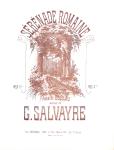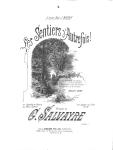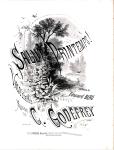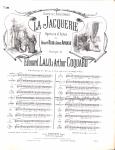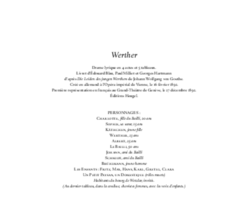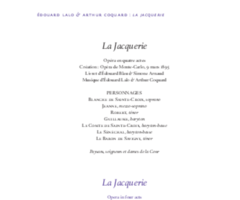Édouard BLAU
1836 - 1906
Librettist
Born in Blois in 1836, Édouard Blau (real name Stanislas Viateur) moved to Paris at the age of twenty. He began a career in the offices of the Assistance Publique, where he struck up a friendship with the librettist, Louis Gallet. Before resigning from his post in 1870, he had already made a name as a contributor to various newspapers (Revue et Gazette des théâtres, Gringoire, Diogène) and had tried his hand at literature, writing novels, poetry, and plays. In 1868, he and Gallet won a competition for the libretto for La Coupe du roi de Thulé, which was set to music by Eugène Diaz and premiered at the Paris Opéra in 1873. Subsequently, Blau devoted himself almost exclusively to writing librettos for the most prominent composers of the day, including Offenbach, Massenet and Lalo. A skilled poet, Blau endeavoured to produce librettos of a high literary calibre, comparable to the works of literature which inspired them. The text of Le Cid, written in collaboration with Gallet and d’Ennery and set to music by Massenet, drew its inspiration from the original Spanish source by Guillén de Castro, which had been reused in the 17th century by Pierre Corneille. Other noteworthy librettos by Blau include Offenbach’s Belle Lurette , Massenet’s Werther (written with Milliet and Hartmann), Joncières’ Le Chevalier Jean and Lancelot (written with Gallet), Lalo’s Le Roi d’Ys, Godard’s Dante and Puget’s Beaucoup de bruit pour rien. He also wrote texts for the oratorios Le Paradis perdu by Théodore Dubois and Rédemption by César Franck, as well as the scenario for Léon-Gustave-Cyprien Gastinel’s ballet, Le Rêve.
Scientific publications
Articles
Werther, or 'poetic reality'
Publication
Jules Massenet. Werther
Publication


